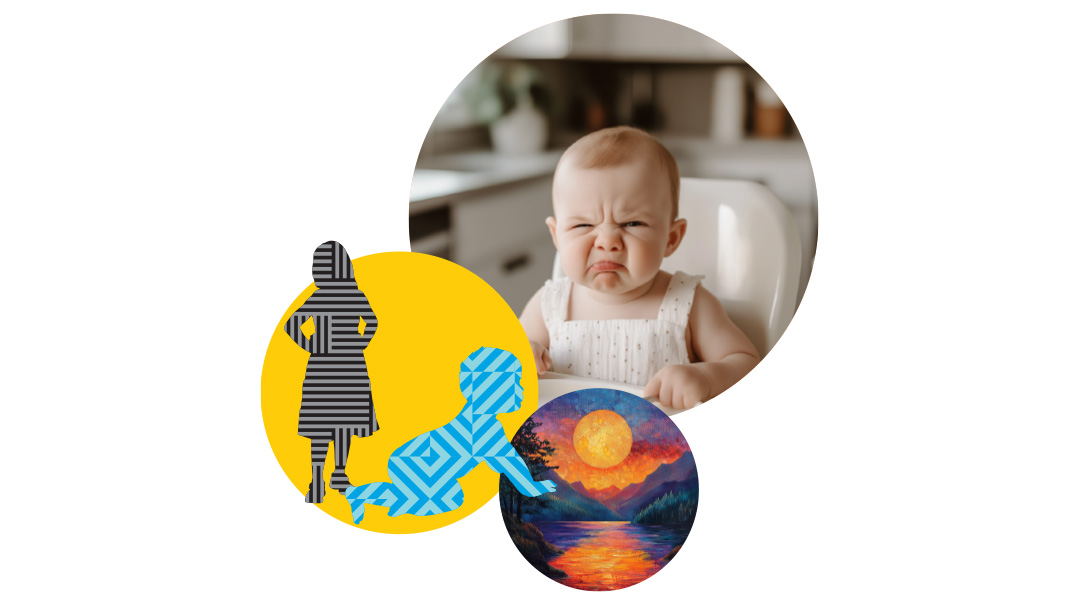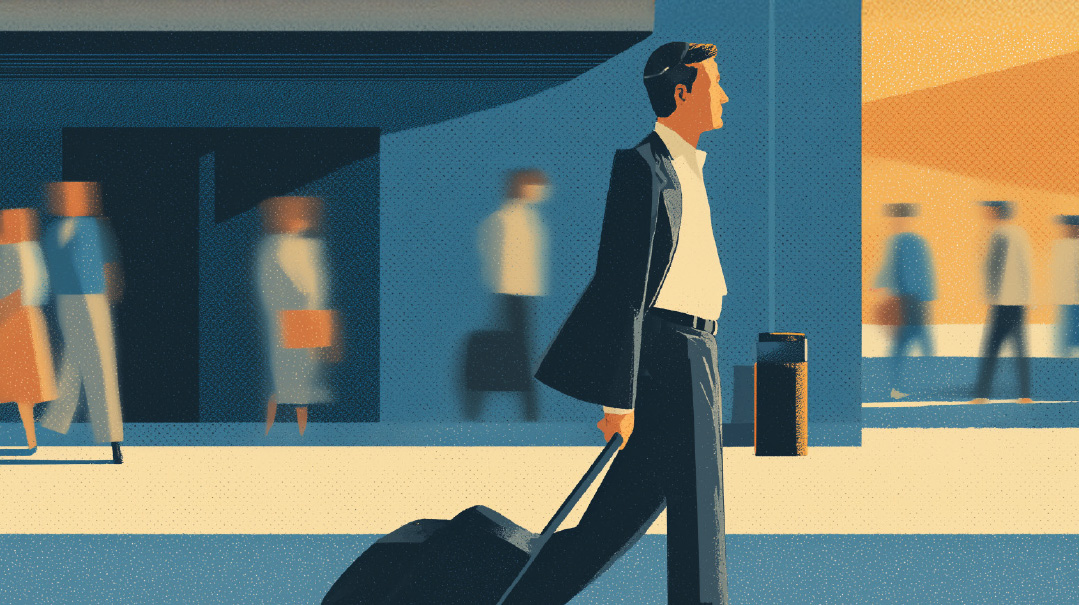Family First Inbox: Issue 927

“End-of-life doulas are mostly lay people who want to make a difference”

So Much Heartache [Family Reflections / Issue 926]
Thank you, Sarah Chana Radcliffe, for your important insights on how damaging cutting off from family is. I believe that as the next years unfold, we may witness countless individuals suffering from this new and troubling phenomenon, victims of well-meaning therapists who were encouraged to sever ties with parents deemed “controlling,” “obsessive,” or emotionally challenging.
I’m a victim of such advice. Through immense siyata d’Shmaya, heartfelt tefillah, and significant inner work, I was able to recover from the painful months when I was counseled to distance myself from my parents and refrain from going to them for Shabbos. While I have recovered from the intensity of brainwashing and know and believe my parents are imperfect people (as am I and every other person on this planet!) who are my loving parents first and for all, I don’t know whether my parents themselves will ever fully heal from the heartache of that period. Heartache is an understatement.
Today, as I watch my mother bake with my daughter or see my father beam with pride at my son’s Chumash party, I am filled with gratitude to Hashem for these precious moments that were nearly taken away from me and my family.
Thank you again for bringing this crucial awareness.
Anonymous
A Precious Gift [Mind the Gap / Issue 925]
Rivki Silver’s article, “Mind the Gap,” deeply resonated with me. I was 42 when our ben zekunim was born — our fifth son — with an eight-year gap between him and our fourth, and a 17-year gap between him and our eldest.
I’ve been called Savta while shopping with him, and his friends have told me their grandparents are my age. Over time, I’ve come to wear this as a badge of honor, cherishing the unique dynamic it brings to our family. I can’t imagine our lives without this incredible gift.
Recently, our “baby” was seriously wounded in Lebanon. His siblings — and their wives, whom he considers his sisters — immediately rallied around him, never leaving his side for an entire month. We cannot imagine our family without him, and we have been privileged to witness nissim v’niflaot as he begins his recovery.
Our experiences have only deepened our gratitude for the precious gift of family and the miracles that sustain us.
Debra Weiner-Solomont, MSW
Jerusalem, Israel
Less Frightening [On Your Mark / Issue 925]
I was fascinated to read about Tamar Stein’s inspiring work as a chaplain and grief counselor. Her dedication resonates deeply with me, as I’ve been training frum women to become end-of-life doulas over the past two years.
Chaplains, unlike doulas, are professionals in their field. End-of-life doulas are mostly lay people who want to make a difference. If there is going to be a revolution in this field it has to begin with regular people. The type of training Tamar did takes time and money that not everyone has. The work of doulas is meant to affect many people quickly so that attitudes toward preparing and accepting what’s to come will change. Perhaps it will begin slowly, but then the hope is that the fundamental idea of this new way of thinking about death and dying will quickly spread to our communities. Revolutions begin with many people realizing that there is a need for change.
The remarkable women who are involved in this work receive hashkafic guidance from the course and hadrachah from a rav, equipping them with the skills to support patients and their families during life’s most vulnerable moments. We try, as best as we can, to make the inevitable transition everyone must face less frightening.
Thank you for highlighting Tamar’s important spiritual work.
Chanie Mandel
How Lucky You Are [Words Unspoken / Issue 924]
Dear Former Friend,
How lucky you are to live in a world where you can say, “Stop involving police, courts, and Child Protective Services. Even if you’re right, it’s getting you nowhere,” and actually believe it.
How lucky you are that your life and marriage align with our community’s values and Torah, where rabbis and beis din can step in and help when things get tough.
How lucky you are that you’ve never had to spend hours upon hours with rabbanim, mediators, and lawyers — desperately trying to avoid court, knowing deep down it’s all for nothing. Because when you’re dealing with someone abusive, it’s never that easy.
How lucky you are that you don’t have to sit in shul or at community events, feeling the weight of people (not so) silently judging you. That you don’t have to hold back, trying to protect your kids’ privacy — or even your ex’s privacy — knowing they don’t have the full picture. That to them, you’re just a story. A character in a drama you never asked to be part of.
How lucky you are that you’ve never had to face the reality that the person who’s supposed to help you protect and care for your kids is the one you need to protect them from. Not because they might forget a school pickup, but because they might leave drugs lying around, needles out in the open, or a two-year-old alone in the house.
How lucky you are to think I’m doing this out of spite or to make a point.
How lucky you are that you’ve never been woken up in the middle of the night by a person yelling and threatening you, and you knew you should call for help — but couldn’t. Because it wasn’t just some stranger yelling, it was your spouse.
How lucky you are to not live with someone who can fool the world into thinking they’re perfect, while making you look like the crazy one. That your biggest problem in all this, dear former friend, is deciding whose side to take.
How lucky you are that you don’t spend every waking minute second-guessing every choice you make. That you don’t lie awake at night, knowing that every dollar you’re working so hard to earn — sometimes at two jobs — is disappearing into a fight you never wanted but can’t afford to lose.
How lucky you are that you’ve never read a letter in a magazine — written by someone who doesn’t have a clue — telling others to “just make an agreement,” and now, you think maybe you should just do that… as if it’s that simple. As if that agreement won’t put your kids at risk for the rest of their lives.
Look, I get it. This is uncomfortable for you. But this isn’t about you.
And you know what? It’s not about me either. It’s about my kids. And yes, I’ll do whatever it takes to protect them.
If any of this hits home, don’t ignore that gut feeling. Don’t second-guess what you know is right. Do what you need to do to keep your kids safe. No matter how hard it is, they deserve nothing less.
A Mother Doing Whatever It Takes
She’s a Hidden Gem [Fed Up with Feeding / Issue 923]
Thank you for interviewing the humble and hidden gem of Lakewood, feeding specialist Chaya Rosmarin. I just wanted to mention that she helped out my family (and countless others) when no one else was able to. My son was seen by every manner of therapist from early intervention, but he was still not speaking at all by age three. Ultimately, Chaya was the right shaliach who sent us to Dr. Kushner in East Brunswick, and together they were the keys to unlock his speech disorder. “Morah Chaya” worked tirelessly to help my son be able to communicate clearly and effectively. It is around nine years later and now he doesn’t stop talking, baruch Hashem. If not for Chaya Rosmarin, I can’t imagine where we would be right now. She will be the guest of honor at his bar mitzvah next year im yirtzeh Hashem!
S.H.
Lakewood, NJ
It’s Not Your Problem [Family Connections / Issue 923]
I’m writing in response to Sarah Chana Radcliffe’s Family Connections about a woman who felt that she and her children were the least loved of all the siblings and grandkids. I definitely think it’s worth it for this woman to bring up with her parents how she feels, but I don’t think she should expect much from them. She wrote that it was like this her whole life, and I really don’t think anything will change.
At this point, all she can do is change her attitude for the sake of herself and her children. I don’t think the advice Mrs. Radcliffe gave, to have her kids “win” their grandparents love and affection, is a good idea. Kids shouldn’t have to win over any loving, caring person in their life. They should be respectful, call to say gut Shabbos, etc., but know that their lack of relationship with their grandparents isn’t because they aren’t doing enough. It’s very hard and very painful when parents/stepparents prefer siblings/grandkids over you, but it’s is very much a “them problem” and not a “you problem.” The sooner you can see this, the happier you will be.
R.S.
Rejection Is Protection [Windows / Issue 922]
I smiled ruefully as I read “The Terrible, Horrible, No Good, Very Bad Date,” as I recalled my own time with many, many blockheads.
There was the time when a complete stranger approached our table at a hotel lobby and announced, “I have a good feeling about you two. You’re going to end up together.” I laughed uproariously at his inaccurate assessment of this aggravating one-and-done.
For me, in retrospect, the “nice normal guy who’s not for me” was more of an issue than the blockheads. With the blockheads, you could say no without a thought and move on. But with the nice normal guy who’s not for me — then it got thornier. Am I just picky? Unreasonable? The way everyone says I am?
Looking back, I can say that “rejection is Hashem’s protection,” and know that, for sure, my husband is my nice normal guy.
Oh, and no need to torture oneself with “hishtadlus.” Nothing ever came from it whenever I felt compelled to do it. Hashem’s timing may be later than we would like, but it’s His show.
Lea Pavel
Multipurpose Journal [Inbox / Issue 920]
Regarding the letter from the reader who suggested that instead of keeping a gratitude journal to herself, Faigy Peritzman should keep a gratitude journal to Hashem, I’d like to share what I do. I keep a daily gratitude journal where I write thank-Yous to Hashem. Believe me, there’s always so much to thank Him for, if only for the fact that He granted me another day of life. I also use this same gratitude journal to sort through my feelings, which at times includes giving myself a pat on the back — a necessity so that I can continue growing in my avodas Hashem. At other times, I analyze my negative feelings and remind myself that Hashem has never forsaken me until now and surely won’t forsake me now either.
Name Withheld
(Originally featured in Family First, Issue 927)
Oops! We could not locate your form.



